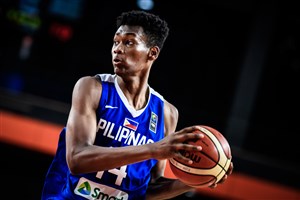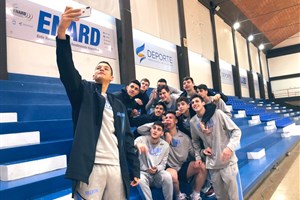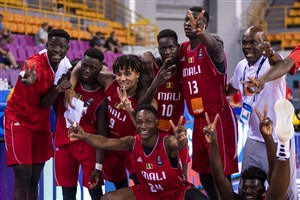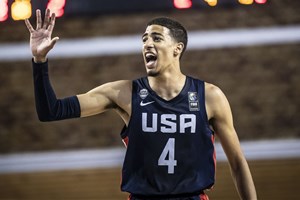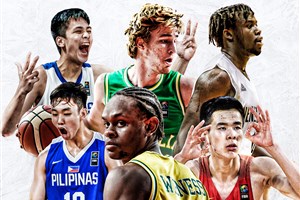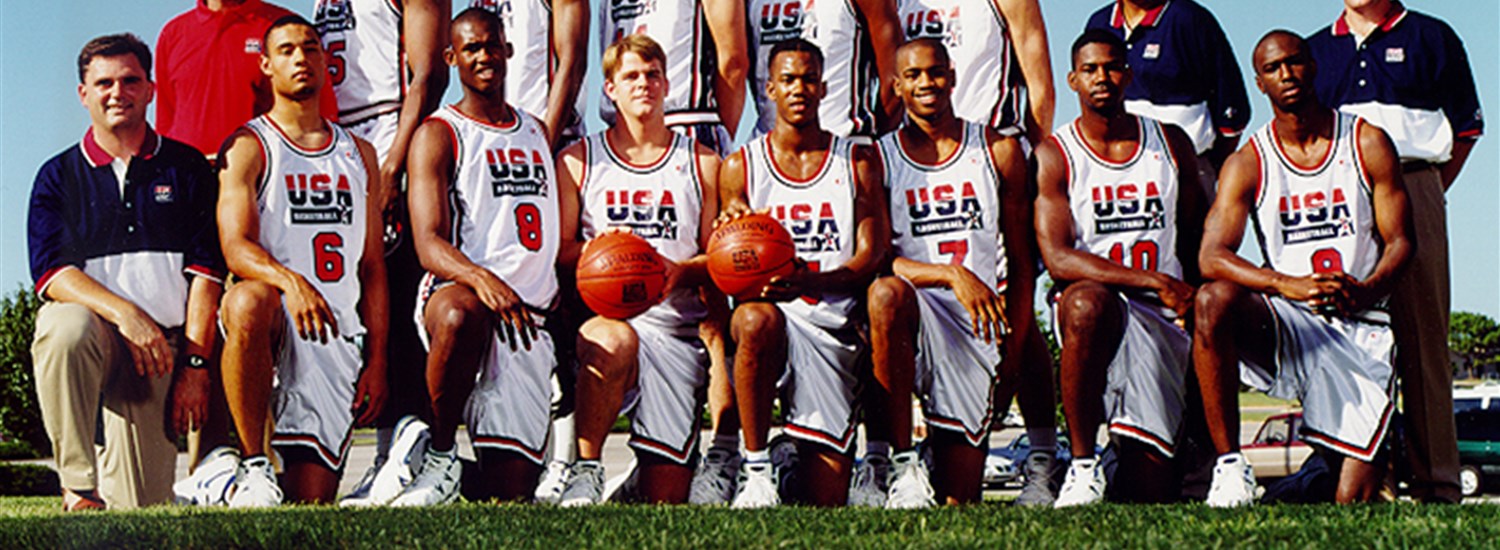
U19 World Cup a life-changing experience, says 1995 veteran Marbury
MIES (Switzerland) - The FIBA U19 Basketball World Cup returns to Greece this summer for the fourth time after Athens hosted the event in 1995, Thessaloniki in 2003 and Heraklion welcomes the world back once again after the 2015 spectacle. The United States team in 1995 included future superstar Stephon Marbury, who averaged 17.5 points for a side that finished seventh.
FIBA.basketball caught up with Marbury to reflect on that summer in Greece.
You were 18 years old when you played the FIBA U19 Basketball World Cup in Greece, was that the first time you traveled abroad?
Oh no, we went before that to the FIBA U18 Americas Championship 1994 in Argentina. We won the gold medal. We played against that same team that beat us in Greece. We played against those same guys in Argentina. Nobody could forget that.
You scored 17.5 points per game, making you the team's leading scorer and the second-best scorer among all guards behind Sarunas Jasikevicius of Lithuania. What do you remember from that event 24 years ago?
During that time when I was playing, I wasn't one of the starters at first. And I remember this clearly because when I got there, I was the first guy off the bench. And when I got in the game, we were losing, but when I got in, I'd change the game. We'd start playing better, then all of a sudden I became the starter and coach started to rely on me to do more. I think my experience in playing international basketball definitely helped whereas we had some guys who had never played international basketball before. We won a medal before that and that helped me play better from the previous years.
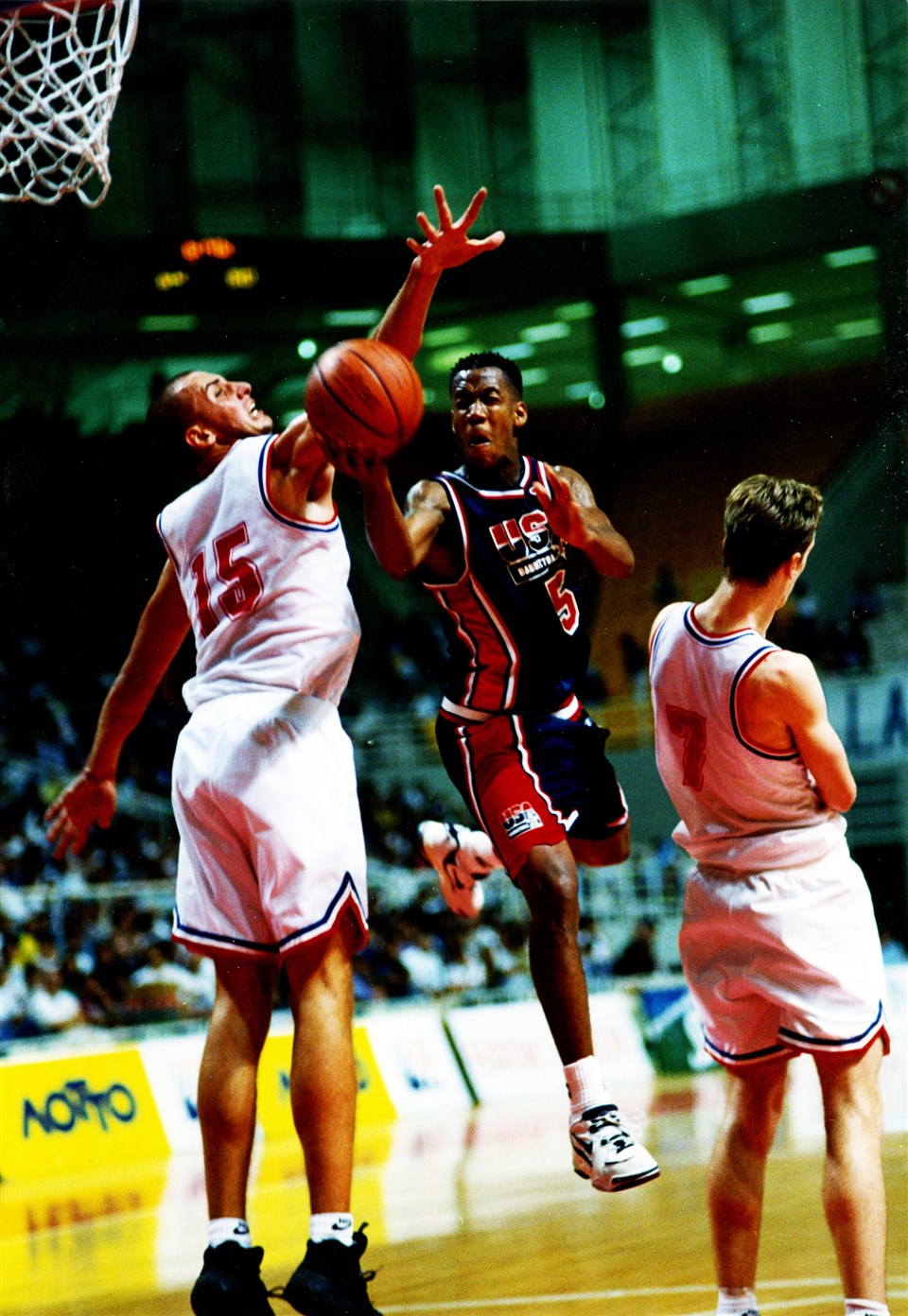 Stephon Marbury at the FIBA U19 Basketball World Cup 1995
Stephon Marbury at the FIBA U19 Basketball World Cup 1995
Do you have any advice for the young players who are getting ready to play at the U19 World Cup this summer? What can they take away from this experience?
I mean, the thing that happened to me was when I went to the (FIBA U18 Americas Championship 1994), I was supposed to go to my prom, but then I got the letter from USA Basketball inviting me to play for the U18 team. I thought it was so cool, but looked at the letter and saw the date. At first, I didn't want to go, but when my mother found out, she told me, 'Oh you're going to Team USA.' I said, 'Mom, are you serious?' but she cancelled my prom and I went to Team USA.
And it was a good decision because my experience with Team USA was life-changing. I got the opportunity to leave Coney Island in New York and go to Buenos Aires, Argentina. I got the chance to see how other kids live. I mean, I went to France and other places, and those were nice. So when I went to Argentina and saw kids with no shoes, seeing their real struggle, I was thinking: 'I'm a kid from the ghetto, and it's so bad with all the violence.' But when you go and see all those things some place else, you realize how so many kids face the same obstacles, not just me. What I tell the kids is: You go on these trips and get the opportunity to play abroad, take the experience in as far as the culture. Experience what others experience. Feel what they feel. You may think your situation is bad, but there's always another situation that maybe could be worse. You don't realize that because you think what you have going on where you're from is tough and hard, but it's not exactly as hard as you think when you see other people.
I always tell the kids to just take the experience, invest yourself into learning about the culture and how people operate, so you can communicate on another scale as opposed to just communicating with the people you're familiar with.
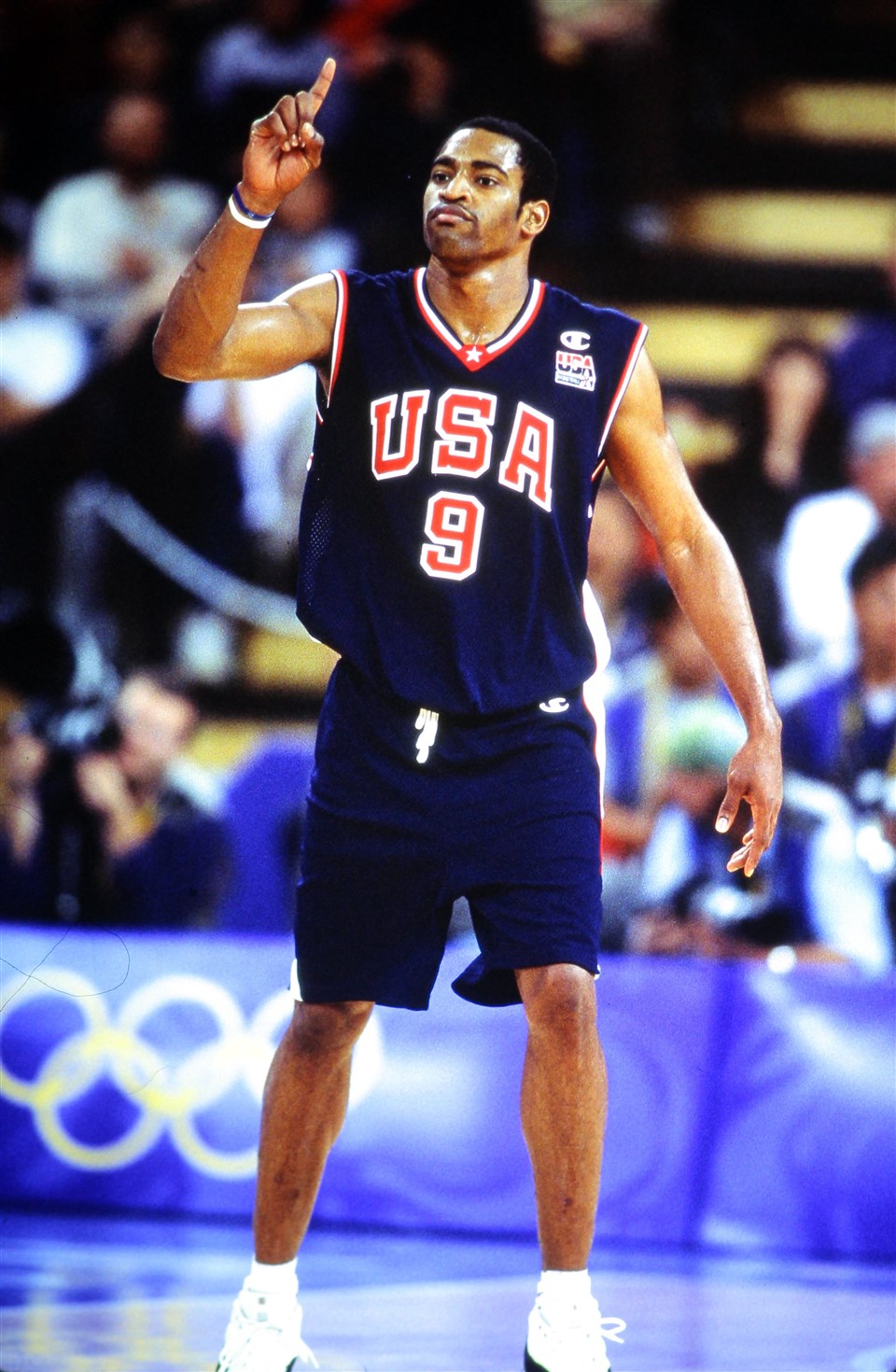 Vince Carter - here at 2000 Men's Olympic Basketball Tournament
Vince Carter - here at 2000 Men's Olympic Basketball Tournament
You had some star teammates on that team in Greece like Vince Carter. What did you think about that?
It was weird, you know. Like I told you, I came from a team that won the championship (at the FIBA U18 Americas Championship 1994), and it was just like a weird mix of players that were on the team. They even sent one player home - Mark Sanford. The energy wasn't really right like how it was when we won with Clint Haskins. It was a different situation in terms of the composition of the team, the motivation. Some guys just seemed like they were happy to be on the U19 team, and they weren't taking it as we're really going to play for our country.
I don't really think everyone knew the meaning behind it. I also didn't know the first time I played for Team USA, so I know how those guys felt. The second time around, though, I knew the importance of it, which is why I was able to play the way I did. I was better prepared and more ready to do that. I remember during that time, we weren't really all on the same page.
 Luis Scola (left) and Pepe Sanchez (middle) at the 2004 Olympics
Luis Scola (left) and Pepe Sanchez (middle) at the 2004 Olympics
There always seems to be something about Argentina. You beat them for gold in 1994 but lost to them in the U19 World Cup. You lost to them in 2004, and then they became Olympic champions. Did you have a special rivalry with those guys?
You see those guy grow together. I've watched those guys since we were 16 or 17 years old. I was playing against those guys like Luis Scola and Pepe Sanchez. You see those guys not only grow, but you get to see them play at a high level, which you knew when you played against them in the past that they'd be good. You knew that if they kept working and continued to grow, that they would get better, and they did. Out of all the international teams, for me, Argentina really had a special group of guys who at that level, they always continued to get better.
What's your best memory with Team USA overall?
My best memory with Team USA would be in 1994 when we won in the FIBA U18 Americas Championship because we had real order. Coach Haskins was really militant in what he wanted. Like if we didn't win by a certain amount of points, we wouldn't eat, like we would eat just bread and water. No soda. Like, straight up, no regular meals. When we won by the margin he wanted, it was great, but if we didn't, our practices would be more difficult. We would have like two-and-a-half hour practices before games, so it was a structure and balance of what was needed to actually win the gold medal. I think that was the type of discipline needed to win at international play because you're representing your country. You have to take this formality and take on that same mindset like soldiers who are also representing or defending the country.
FIBA

